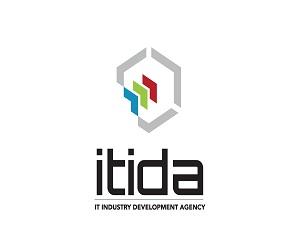By : Bakinam Khaled
Business travel has long been a cornerstone of global success, driving client relationships, team collaboration, and professional growth. Yet, despite its importance, planning and managing business trips often feels like a maze—complex, time-consuming, and riddled with setbacks.
This is according to João Carvalho, Managing Director of SAP Concur in Southern Europe, Middle East, and Africa, who says that recent data from SAP Concur reveals that 82% of business travellers say their company requires pre-trip approvals for their business trips, and 67% have seen an increased focus on these processes at their company in 2024. “Balancing efficiency with compliance remains a challenge for many organisations.”
“The traditional travel approvals process can burden employees and managers alike, demanding hours of research to meet preferences, company guidelines, and budgets,” he adds. “Even then, plans can be rejected by approvers with a clearer view of policies, causing delays and frustration.”
Carvalho highlights that AI is revolutionising how companies manage travel logistics. “By automating time-consuming processes and ensuring policy compliance, AI is transforming the experience for both travellers and managers. From planning itineraries to capturing expenses, these tools are reshaping the business travel landscape, saving time, and putting the focus back on the benefits of travel. By leveraging AI-powered assistants, travellers can create a seamless booking process that reduces planning time from days to minutes.”
With this in mind, he unpacks three ways AI-powered assistants are simplifying travel planning:
1. Supporting itinerary development
Travel planning can feel like assembling a complex puzzle. Coordinating key elements such as flight times, hotel bookings, transport, and personal preferences requires thoughtful attention to detail. For travel managers, this process can be time-consuming and prone to errors, with the risk of overlooking important aspects.
AI can identify potential conflicts, missing details, or inconsistencies, enabling planners to make smarter, more informed decisions. By eliminating inefficiencies, AI ensures a more accurate and streamlined planning experience, saving valuable time and resources.
2. Ensuring compliance with company policies
Once an itinerary is submitted for review, it often undergoes multiple compliance checks, leading to adjustments that can delay bookings.
AI simplifies this process by integrating cost estimates directly into their itineraries and ensuring alignment from the start. By considering trip duration, destinations, and additional services, AI reduces approval times and prevents unnecessary delays.
Nearly all business travellers (95%) are open to using AI for booking, and with the right training, these tools can significantly enhance planning efficiency. AI’s automated compliance checks and cost estimations enable quicker, more accurate decisions.
3. Capturing and reporting expenses
AI-powered assistants can now accurately estimate travel costs,track and report on travel expenses and populate expense reports with accuracy and speed.
If the total matches the original estimate, AI platforms can auto-approve expenses, saving time for managers and finance teams and ensuring fast reimbursement.
This feature resonates with many business travellers. According to the SAP Concur survey, 37% of business travellers are considering using AI-powered automation to support capturing and reporting expenses.
What’s next for thoughtful automation
Businesses are continuously bombarded with news of how AI will ‘change the game’ and revolutionise industries in the future, but in the field of business travel, employees are already feeling the benefits of thoughtful automation.
Future iterations of AI assistants will likely offer personalised travel recommendations based on past preferences and more reliable cost estimates informed by industry benchmarks.
“As AI continues to evolve, its integration into travel planning tools will deepen. Slowly but surely, sector leaders are paying attention, and business travel is being put back on the map,” concludes Carvalho.













































































